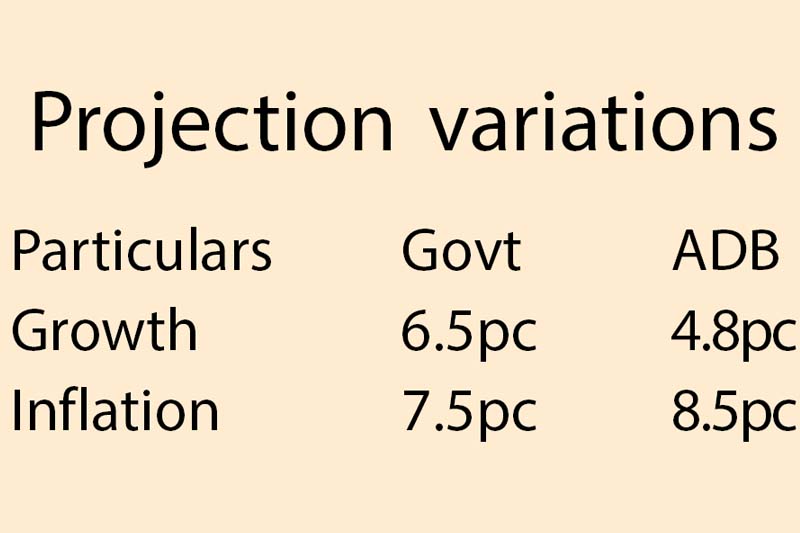Country likely to clock growth of 4.8pc: ADB
The country will likely clock an economic growth of 4.8 per cent in this fiscal year as the increase in agricultural output and accelerated post-earthquake reconstruction works are expected to stimulate the economy, according to the Asian Development Bank (ADB).
Unveiling its Macroeconomic Update today, the Manila-based multilateral lender said that the country has both upside potential and downside risks to attain the projected economic growth.
“There are less downside risks as compared to the upside prospects. However, while making the forecast we have taken into account the downside risks like constitutional dispute and possibility of bad weather during the dry season, which will affect agricultural output,” said Kenichi Yokoyama, country director for ADB Nepal Mission.
The projection made by the ADB looks a bit pessimistic as compared to the government’s own growth forecast of 6.5 per cent for this fiscal from 0.8 per cent of the previous fiscal year. The country’s economy was hit hard in the previous fiscal due to the impact of the twin earthquakes and the four-and-a-half-month long supply line disruptions from India and its cascading effects.
The Bank has also projected inflation to hover at around 8.5 per cent in the current fiscal, a dip from the average 9.9 per cent witnessed in the previous fiscal. Though the supply situation has normalised, the large budget introduced in this fiscal and the rising inflation wedge between India and Nepal will be challenging for Nepal Rastra Bank — the central bank — to keep inflationary pressure at the desired level, as per the Macroeconomic Update. The central bank expects to contain inflation within 7.5 per cent in this fiscal.
Contrary to the declining trend in remittance growth in the last fiscal and the decline in the outflow of foreign job-seekers, the ADB has said that there will be no significant impact on remittance inflow in the near-term and remittance growth will remain steady this fiscal. However, the sharp decline in oil prices in the Gulf countries, which are the major labour destinations of Nepali job-seekers, will affect remittance inflow in the medium- and long-term, as per Macroeconomic Update.
Rise in import, including construction materials and steady remittance growth, will have an impact on the current account balance. The current account balance is expected to fall slightly to 4.6 per cent of the gross domestic product (GDP).
ADB further said that the government should introduce sector-wise procurement regulation citing that the single procurement law is not apt for all sectors. The amended Public Procurement Act has already been enacted and the government has been formulating Public Procurement Rules based on the act to enforce the new law.
The amended act has raised the level of cost variation order (in projects) and as per the new provision, variation of up to 25 per cent of the project cost can be approved from the secretary-level. Earlier, variation order in excess of 15 per cent used to be approved through the Council of Ministers.
Meanwhile, ADB has expressed concern over the increase in the threshold of work contracts without requiring bidders’ qualifications to up to Rs 20 million from Rs six million. The ADB said that this provision might create collusion between government employees and local bidders. ADB also stressed on strengthening the Public Procurement Monitoring Office — procurement regulator — for better regulation of procurement agreements.






